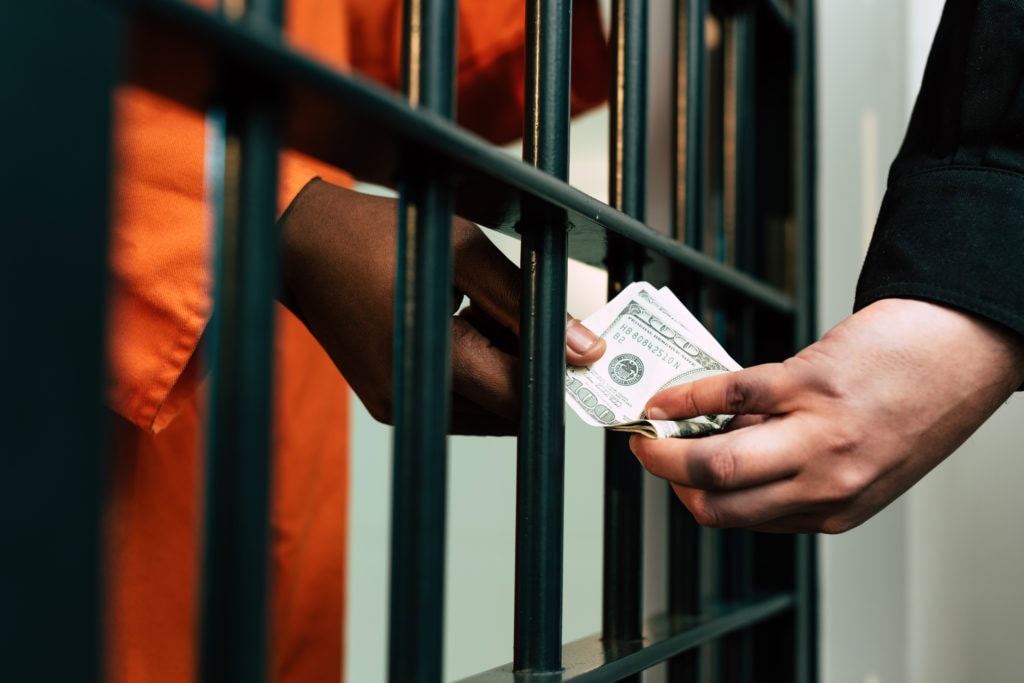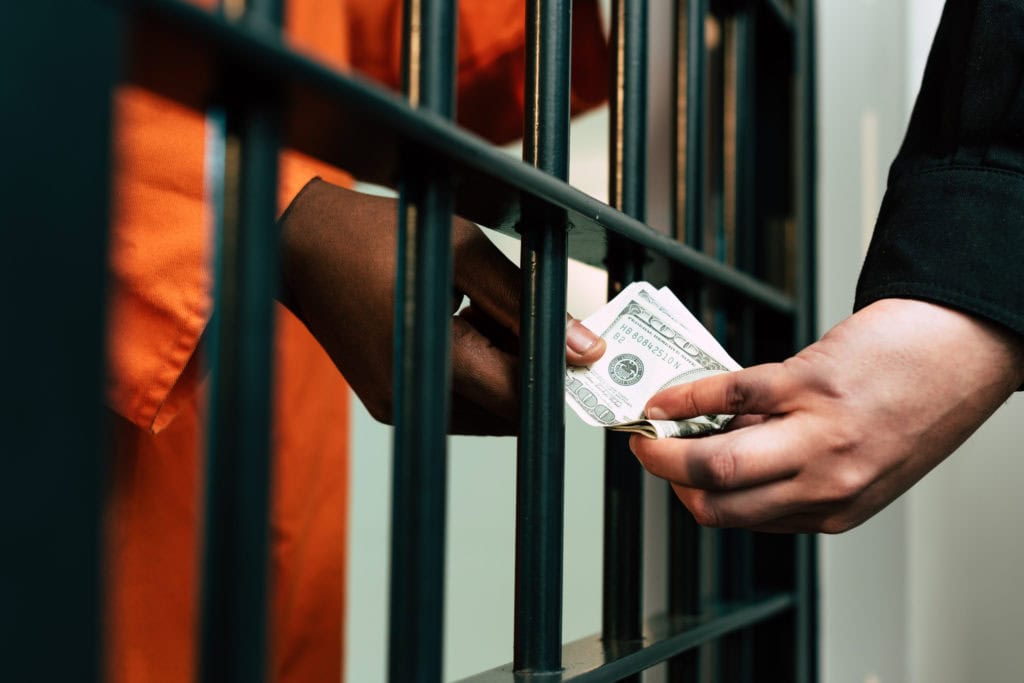How Much Jail Time for Tax Evasion


What is the Penalty for Tax Evasion in Canada?
If an individual or company commits tax evasion, they face charges under the Income Tax Act, the Excise Tax Act, and the Criminal Code, or all three. When accused of tax evasion, the individual or company is subject to multiple civil and criminal penalties under each piece of legislation. For example, the penalty when charged with tax evasion under the Income Tax Act has a fine of up to 200% of the total amount of taxes evaded and up to two years in jail. When an individual is charged for fraud under the Criminal Code for evading taxes, they are liable to spend up to 14 years in jail.
The amount of jail time for tax evasion depends on the specific charges an individual is facing, and the monetary value of the alleged activity.
The majority of cases in both criminal and civil realms are resolved before an actual trial commences. However, conviction rates remain high for tax evaders and schemers, and the penalties can be steep. Regardless of the specific offence you have been accused of, protect yourself by contacting Pyzer Criminal Lawyers to make sure your liberty and assets remain secure.
What is tax evasion?
Tax evasion occurs when an individual or business organization deliberately ignores tax laws to avoid paying. Tax evasion is legislated by the Income Tax Act, Excise Tax Act, and Criminal Code.
The Canada Revenue Agency (CRA) administers and collects taxes both federally and provincially at the corporate and personal tax levels. Canada is a self-reporting tax system that is voluntary, but taxpayers must file an income tax return each year. The income tax estimates the amount the individual or corporation is responsible to pay, and evading or failing to do so will expose the person or corporation to severe civil and/or criminal consequences.
Offences and Penalties under the Income Tax Act
Under the Income Tax Act, there are three main types of criminal offences:
- Tax evasion offences under section 239;
- Offences that deal with evasion relating to tax refunds or tax credits under section 239(1.1); and
- Offences under section 238(1) that pertain to individuals who fail to file or comply with certain provisions of the Act.
Typically, offenders charged under the Income Tax Act are made to repay the withheld amount by the CRA, as well as fines and any interest the CRA requests. Rarely do offenders get sentenced to jail if charged with an offence under the Income Tax Act, however, it is always recommended to contact a lawyer if the CRA has accused you of not filing returns, not declaring income, or any other situation that could potentially result in tax evasion charges.
Tax Evasion |
|---|
OffencesFirst, section 239 of the Income Tax Act addresses the offences for anyone found guilty of tax
|
PenaltiesIf an individual is found guilty of an offence listed in section 239, in addition to any penalty
|
Tax Evasion with Respect to Tax Refunds or Tax Credits |
|---|
OffencesAccording to section 239(1.1) of the Income Tax Act, tax evasion occurs when a person either
|
PenaltiesIf an individual is found guilty of an offence under section 239(1.1), in addition to any penalty
|
Failing to File a Tax Return or Failing to Comply |
|---|
OffencesLastly, offences that pertain to individuals who fail to file, or who fail to comply with certain provisions of the Income Tax Act is evasion and described in section 238(1): Every person who has failed to file or make a return as and when required by or under this Act or a regulation or who has failed to comply with subsection 116(3), 127(3.1) or (3.2), 147.1(7) or 153(1), any of sections 230 to 232, 244.7 and 267 or a regulation made under subsection 147.1(18) or with an order made under subsection (2)
|
PenaltiesIndividuals who commit an offence under section 238(1) is guilty of an offence and, in addition to any penalty otherwise provided, is liable on summary conviction to:
|
The Excise Act
Excise taxes are charged on fuel-inefficient vehicles, vehicle air conditioners, and certain petroleum products.
OffencesEvery person has committed an offence under the Excise Tax Act who:
|
PenaltiesTax evasion under section 327(1) of the Excise Tax Act is either a fine between 50%-200% of the tax owed by the taxpayer, or if the tax owed cannot be determined, the taxpayer is liable to a fine between $1,000 and $25,000. The Excise Tax Act also imposes a possible jail sentence for up to two years. |
Prosecution on Indictment
Penalties under the Income Tax Act and Excise Tax Act for tax evasion offences are typically prosecuted by way of summary prosecution. However, both pieces of legislation give the Crown power to charge by indictment instead of a summary offence.
If charged by indictment under section 239(2) of the Income Tax Act, the accused will face fines of 100-200% of the total amount of taxes they evaded, plus imprisonment up to five years.
If prosecuted by way of indictment under section 327(2) of the Excise Act, the accused is liable to a fine not less than 100% and not more than 200% of the tax owed, and/or imprisonment not exceeding five years.
Tax Evasion under the Criminal Code
When an individual commits tax evasion, they could face a criminal fraud charge along with a civil charge. The provincial Crown will determine whether the case is appropriate for criminal prosecution by focusing on the most serious cases that fall under one or more of the following criteria:
- Significant and/or material cases of tax evasion with an international element
- Promoters of sophisticated and well-organized tax schemes aimed at defrauding the government
- Joint financial crime cases with other enforcement agencies including cases of tax evasion involving money laundering and terrorist financing
- Significant and/or material cases involving income tax and/or GST/HST tax evasion including the underground economy
OffenceFraud under the Criminal Code is committed when an individual who: 380(1) …by deceit, falsehood or other fraudulent means, whether or not it is a false pretence within the meaning of [the Criminal Code], defrauds the public or any person, whether ascertained or not, of any property, money or valuable security or any service |
PenaltiesIf an accused is found guilty of fraud:
where the value of the subject-matter of the offence does not exceed five thousand dollars. Further, the Criminal Code legislates a minimum penalty of two years imprisonment if the total value of the offences exceeds one million dollars. |
If you are charged with fraud under the Criminal Code, a guilty finding will leave you with a permanent criminal record and may impact your ability to travel internationally or secure loans. Contact Pyzer Criminal Lawyers who will vigorously fight for your freedom and protect your interests.
Examples of Tax Evasion
There are multiple ways individuals and businesses can commit tax evasion:
- Falsifying income tax returns
- Purposely not declaring income
- Purposely claiming lower income than received
- Inflating expenses
Frequently Asked Questions
What if You Don’t Agree with the Amount Assessed as Payable by the CRA?
If an individual or corporation does not agree with the amount the CRA says is owed on their tax return, the taxpayer can begin an appeal from the assessment or a re-assessment by filing a Notice of Objection (Objection). The Objection will be considered by the Appeals Branch of the CRA, at which stage the taxpayer has the opportunity to resolve disputes on their income tax before any formal litigation process is commenced.
What Happens if the CRA Suspects you of Tax Evasion?
The CRA can show up unannounced to your house or business with a search warrant if they suspect you have committed tax evasion. However, the CRA typically does not accuse someone of tax evasion right away. Instead, if the CRA suspects an individual or corporation is evading taxes, a formal process is commenced. Most of the time, the CRA requests more information or performs an audit if they find abnormalities in a personal or corporate tax return.
If the CRA accuses you of tax evasion, it is highly recommended that you seek a lawyer to protect your interests and assets so that you do not fall victim to the government who can freeze or seize any or all of your assets.
How is Tax Evasion Proven?
Tax evasion is investigated by the CRA under their Criminal Investigations Program, which then refers cases to the Public Prosecution Service of Canada. Either as a result of a normal tax audit or through third party tax evasion tips, the Criminal Investigations Program has widespread powers to demand documents, books, records, and information from the taxpayer. Specialized teams of federal prosecutors who virtually have unlimited resources at their disposal.
In the context of criminal tax prosecutions under section 239(1) and 239(1.1) of the Income Tax Act, section 327(1) of the Excise Act, and section 380 of the Criminal Code, the Crown has to demonstrate the accused taxpayer intentionally and deliberately contravened Canadian tax laws to evade paying. The Crown has to prove the presence of the mens rea and actus reus beyond a reasonable doubt.
The mens rea, the mental aspect of the crime, can be proven in different ways. For instance, the taxpayer may have made direct statements relating to their intention to evade taxes, or it can be proven circumstantially with respect to all of the facts and evidence.
Section 238(1) of the Income Tax Act is a strict liability offence and only the actus reus is required to be found guilty.
What Should You Do if you Have Committed Tax Evasion but Have not been Contacted by the CRA?
The CRA has a voluntary disclosure program to encourage Canadians who have committed tax evasion to come forward. A successful voluntary disclosure allows the taxpayer to avoid any penalties. If you notice you have made a mistake on your income tax, submit a disclosure to make sure you are not investigated or charged for tax evasion.
Is Tax Evasion Different from Tax Avoidance?
Tax avoidance occurs when an individual finds loopholes in the law and uses them to their advantage to pay less. Tax avoidance is not technically illegal, but the CRA advises against it.
Is it Tax Evasion if I Forget to File my Tax Return?
Not filing a tax return when required to do so may be considered tax evasion. If you live in Canada and have an income(s) from any source, you are required to submit a tax return every year.
Further, not understanding tax laws or filing a return that has mistakes can cause the CRA to further investigate individuals or businesses for evasion.
Conclusion
The CRA has widespread legal powers in the civil and criminal spheres of tax evasion, but the line between criminal and civil can be blurry. Of significance, the procedures employed by the CRA during a civil audit would likely constitute a violation of the individual’s Charter rights if it were a criminal investigation. For instance, the CRA in a civil investigation can threaten the taxpayer to compel evidence. However, if that technique is used in a criminal investigation, Charter rights would likely be infringed, and certain evidence should be excluded.
The stakes are high if you have been charged or are being investigated for tax evasion. Contact an experienced fraud defence lawyer to determine your next steps to protect your assets and liberty.

Jonathan Pyzer, B.A., L.L.B., is an experienced criminal defence lawyer and distinguished alumnus of McGill University and the University of Western Ontario. As the founder of Pyzer Criminal Lawyers, he brings over two decades of experience to his practice, having successfully represented hundreds of clients facing criminal charges throughout Toronto.





